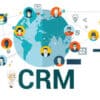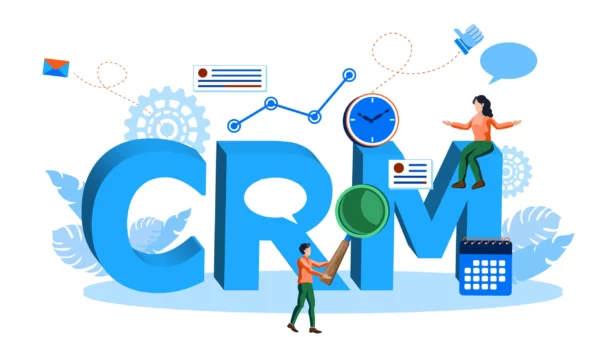Cloud computing is more than just a marketing term: it has grown to become a strong influencer of information technology (IT). Owing to recent developments in support software from eminent IT companies, cloud computing has evolved as a new approach for providing IT services. Cloud computing, in general, offers two facets of advantages: on the obverse, it provides solutions for new business opportunities; the reverse is predominantly for pre-existing users to cut down on operational cost.
Types of cloud computing
Companies that incorporate cloud computing do so in order to increase IT functionality without running separate software, adding personnel or investing in additional infrastructure and training. The types of cloud computing are:
- Infrastructure as a Service (IaaS): A starting rung of cloud computing is IaaS. Here, the services are completely outsourced. Provider of IaaS service offer pre-installed and configured software or hardware for a visualized interface. Benefits of IaaS are reduced ownership and capital cost, access to business-grade IT infrastructure and resources, payment flexibility for only those services used and scale up based on requirement.
- Platform as a Service (PaaS): PaaS is similar to IaaS but more fine-tuned. Apart from proving infrastructure support, PaaS offers solutions for computing platforms. Services offered by PaaS are ideal for companies who seek collaboration, development testing and deployment of a specific application. Benefits offered by PaaS are a strong supportive community, low upfront investment cost, software maintenance and upgrade (handled by the service provider) and easy deployment.
- Software as a Service (SaaS): SaaS is synonymous with cloud computing services. SaaS offers a fully functional web-based application deployed on customer demand. SaaS applications are primarily targeted at businesses which used ERP, email, web conference, CRM and project tracking. Benefits of SaaS CRM are customized services, scalability, remote access and support.
- Recovery as a Service (RaaS): RaaS assists companies in archiving, backup recovery, and disaster recovery and continuity solutions on an integrated platform. Through RaaS, downtime is minimized when disaster strikes. RaaS is also known as DRaaS. Benefits of RaaS include swift recovery of data, minimized downtime, cost-effective data recovery, prevention of permanent data loss and physical infrastructure.
What is customer relationship management (CRM)?
Although CRM does not possess a standard definition, an accepted explanation is: a group of business processes or ideas with a direct impact on contact, retention of customers and addressing. These processes specifically focus on sales, servicing and marketing. Apart from being a technological solution, CRM is an important business strategy tool to gain insight into customer needs by anticipating present and future customers of a company. CRM software is also defined as a factor to establish the optimum balance between corporate investments to meet demands of a customer. Optimum balance is established when parties, here, the customer and the management, reap maximum benefits. CRM is often misconstrued as information system (IS). Information system is one aspect of CRM but also includes methodologies aimed at customer acquisition, identifying customer requirements and needs, understanding customer behavior and development of stable customer relationship.
Integration of cloud computing for CRM
SaaS model is identified as the most sophisticated and comprehensive model for cloud computing. Through SaaS, functionality to address targeted requirements of a company is addressed. General applications of SaaS are web-based communication including emails, office and video suites. SaaS is the best available tool for communication automation. CRM draws immense benefit from SaaS when the latter is used for customer communication purposes. CRM services are tied to personal computers and servers, and full functionality is available on the internet. As a result, a customer can achieve full productivity on the go when CRM is on cloud.
Advantages of Cloud CRM for your business
CRM is a powerful tool which ensures that organizations of all sizes deliver business objectives and creates a link between marketing and sales teams. Advantages offered by cloud CRM are:
- Cloud CRM is a cost-effective business solution: Cloud-based services do not require additional networking, infrastructure and are easy to set up. Also, the option of pay-as-you-go removes upfront cost. Training, if required, is simple and quick. Projects don’t face delay as cloud solutions are deployed with immediate effect. Cloud CRM set up time is less than a few hours. Two major areas of saving, as a result, are in IT management and labor cost.
- Cloud CRM enhances productivity: A business solution is viable only when it increases productivity. On installing a single Cloud CRM application, employees fulfill their duties from remote or on-site locations. They aren’t tied down to a specific geographical location to work on real-time data. Productivity is enhanced by several folds when frequent and actionable customer insight is delivered.
- Cloud CRM offers easy access: Access to real-time data is critical for productivity. Anytime, anywhere solution offered by Cloud CRM ensures that employees work with updated information. Cloud CRM is the most significant change in customer relationship management. Logging in from anywhere is possible as long as the employees have access to the internet connection on a compatible device. Cloud CRM is ideal for mobile workers and for projects which are out of hours. Information which can be accessed through an office environment can be done so, remotely.
- Cloud CRM offers round the cloud access: An office setting has few limitations; one of significance is restricted work hours. Information that is accessible only through an office desktop is unavailable on personal use computers. Such a limitation does not pose any problems when the company deals with customers and clients from related time zones. Companies that handle international clientele and customers, work around the time differences. In such scenarios, an option of remote access through cloud ensures minimal delay in correspondence.
- Cloud CRM offers automated sales force and structured data: Through Cloud CRM services, information gathered can be structured to reflect customer behavior, likes and dislikes. Using this information, the sales team can put forward improved tactics and strategies.
- Cloud CRM offers guaranteed safety: Any business, regardless of its size, is as good as its enforced security measures of data protection. Cloud CRM guarantees data integrity and protection through in-built security and encryption measures.
Cloud CRM, apart from the benefits mentioned above is energy efficient. Accelerated growth of IT infrastructure is at the cost of energy expenditure but when services are shifted to the cloud, energy utilization is significantly reduced. Cloud CRM is the best in class choice for CRM. From added security to real-time updates, Cloud CRM simplifies data organization and increases the efficiency of a process. Once the switch is made to cloud CRM, you can never go back.
A digital marketer and an occasional content writer

1 Comment
Leave a Reply
Cancel reply
Leave a Reply
This site uses Akismet to reduce spam. Learn how your comment data is processed.

























































































































































































Mehul Shah
July 31, 2018 at 11:11 am
Nice insight shared Vaishali, The article seems to be really helpful in understanding how cloud-based CRM is more useful compared to on-premise CRM.
Thanks for sharing